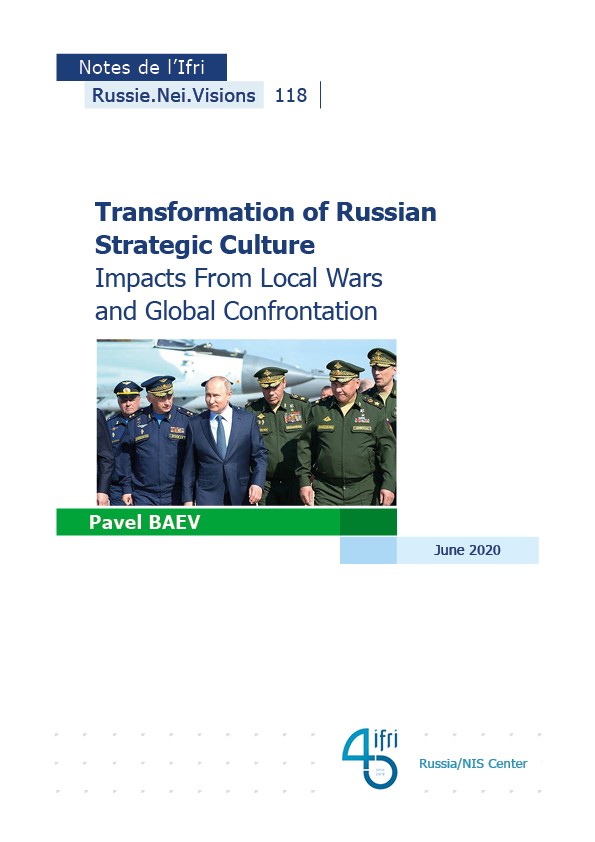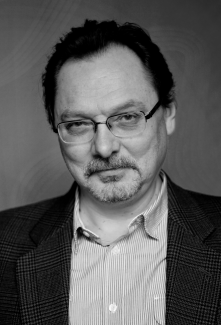Transformation of Russian Strategic Culture: Impacts from Local Wars and Global Confrontation

Russian strategic culture is evolving fast, despite the consolidation of the ruling regime, which is maturing into a more rigid autocracy, whereby its ideological outlook becomes increasingly conservative.
The Russian leadership’s strong propensity to glorify the past and emphasize victories inevitably distorts the content of internalized experiences and reduces the capacity to learn from mistakes. This assertive conservatism fits well with interpreting the new confrontation with the West as a return to the Cold War pattern of relations, despite the obvious vast differences in the geographic and power parameters of the conflict. At the same time, the pressure of actual engagements in military conflicts and fast-evolving technologies induce and drive changes in the strategic culture, which has become more fluid than the Russian political and military elites have been used to.
The Armed Forces are directly exposed to the challenges of unfamiliar battlefields and unprecedented threats, so the top brass, while being firmly committed to conservative mindsets and values, are compelled to act as innovators and reformers of the strategic culture. The input from the General Staff and other structures of military command, which now include many “warriors” with first-hand experience in various armed conflicts and engagements, particularly the Syrian intervention, has been more productive in new fields such as cyber-operations than in the more politically sensitive matters pertaining, for instance, to the threat of revolutions. The problem with the transformation of the strategic culture initiated by the military elite is the strongly implied and clearly stated imperative to increase the allocation of resources to build up the Armed Forces. In a situation of protracted economic stagnation, this demand creates an unusual degree of tension between the ambition to withstand, and even prevail, in the confrontation with the West, and the reality of contracting resource allocation, which is further trimmed by rampant corruption.
Pavel Baev is a Research Professor at the Peace Research Institute, Oslo (PRIO). He is also a Senior Non-Resident Fellow at the Brookings Institution, Washington DC, and an Associate Research Fellow at Ifri, Paris.
Download the full analysis
This page contains only a summary of our work. If you would like to have access to all the information from our research on the subject, you can download the full version in PDF format.
Transformation of Russian Strategic Culture: Impacts from Local Wars and Global Confrontation
Related centers and programs
Discover our other research centers and programsFind out more
Discover all our analysesThe Caspian Sea as an Emerging Energy Hub : Potentials and Limitations
This report analyzes the prospects of the Caspian Sea region — and its key actors except for Russia and Iran — becoming an important energy hub serving the needs of the European Union (EU).
The European Union's Strategic Test in Georgia
The political crisis brewing in Georgia is of an existential nature for the country. What is at stake is Georgia's future as a democratic and sovereign European nation (EU).
Commanders of Putin's Long War: Purged, Reshuffled and Disgruntled
The trend of reshuffling the Russian top military command in the course of a fast-evolving and far from successful war has progressed unevenly both across the Armed Forces’ structures and in time. The rationale for and timing of the abrupt cadre decisions made by Commander-in-Chief Putin often defy logical explanation, and the rare official clarifications are no more informative than the usual information blackout.
Russian Military Manpower After Two and a Half Years of War in Ukraine
In addition to a military victory in Ukraine, the Russian leadership is planning to build up sizable troop formations for a possible conflict with NATO in the Baltic region and the Kola Peninsula. In particular, current plans aim for the military manpower to grow by about 350,000, reaching a total of 1.5 million soldiers and commanders. In the context of the current conflict in Ukraine, this cannot be accomplished without a new wave of mass mobilization.











